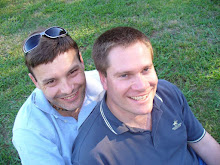It’s been my turn in hospital this week. I went into surgery on Tuesday afternoon for a submucous resection septopasty, turbinectomy and concha bullosa resection; or as some would say, I’ve had a nose job. Over the last few years my nose has become progressively blocked by swollen nasal membranes and a deviated septum (the piece of cartilage that separates your nostrils). The condition was seriously aggrevated by chronic hayfever I suffered annually in London. In more rece3nt years things had reached a point where was breathing from one nostril during the day, then snoring loudly all night.
In case you’re wondering, a submucous resection is an operation where they separate the mucus lining in your nostril from the underlying cartilage. The cartilage is then reshaped and the lining restitched. A turbinectomy involves reducing the size of three internal nodules, or turbinates, that line the nasal passage. The last bit of surgery had every nurse completely stumped. A concha bullosa is an air cavity that often develops inside one or more turbinates. These can swell over time, blocking the nasal passage. The surgery took just over an hour and all seems to be healing well.
This was my first time under general anesthetic. Despite my apprehension, the experience wasn’t particularly unpleasant. In fact, I find it rather fascinating to awake in a brightly lit room surrounded by fancy machines and attentive nurses. I cannot recall being so pampered and fussed over for a long time. Nor were they the least bit bothered that I had a large blood splattered tampon-like bandage strapped under my nose. If I'm honest, the entire experience of being in hospital gave me a fascinating insight into the world of modern medicine.
Perhaps the most surprising observation was the number of people I dealt with during my brief 20 hours as a patient. Each had a distinct role, performed professionally and efficiently. Before surgery I met at least seven people including my doctor and anesthetist. Six separate people attended to me in my first hours after surgery, then the following morning another six people visited me in quick succession bringing newspapers, breakfast and paperwork to sign. In all I counted at least 19 different people who came to my bedside at various times.
I had no idea so many people were involved in the running a hospital from administrators and cleaners, to doctors and nurses. The volume and variety of roles I encountered was fascinating. All were polite, caring and consistently put me at ease. I’ll never fear going into hospital again. However, the bills now arriving in my letter box are a shock to the system. It seems that such attentive care comes at a cost. I'm left pondering how to reduce headcounts and thus the spiraling cost of health care without sacrificing its quality.





No comments:
Post a Comment